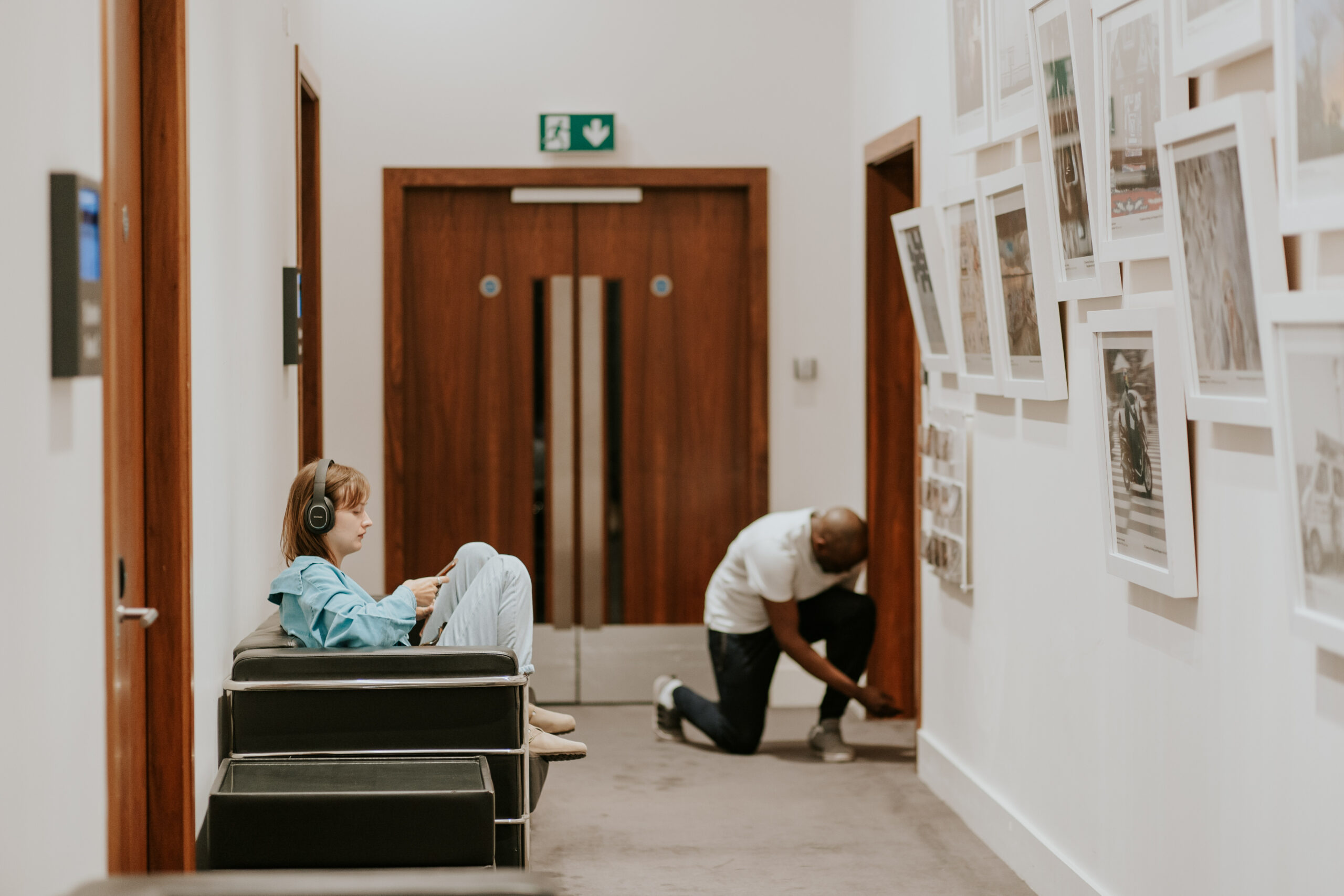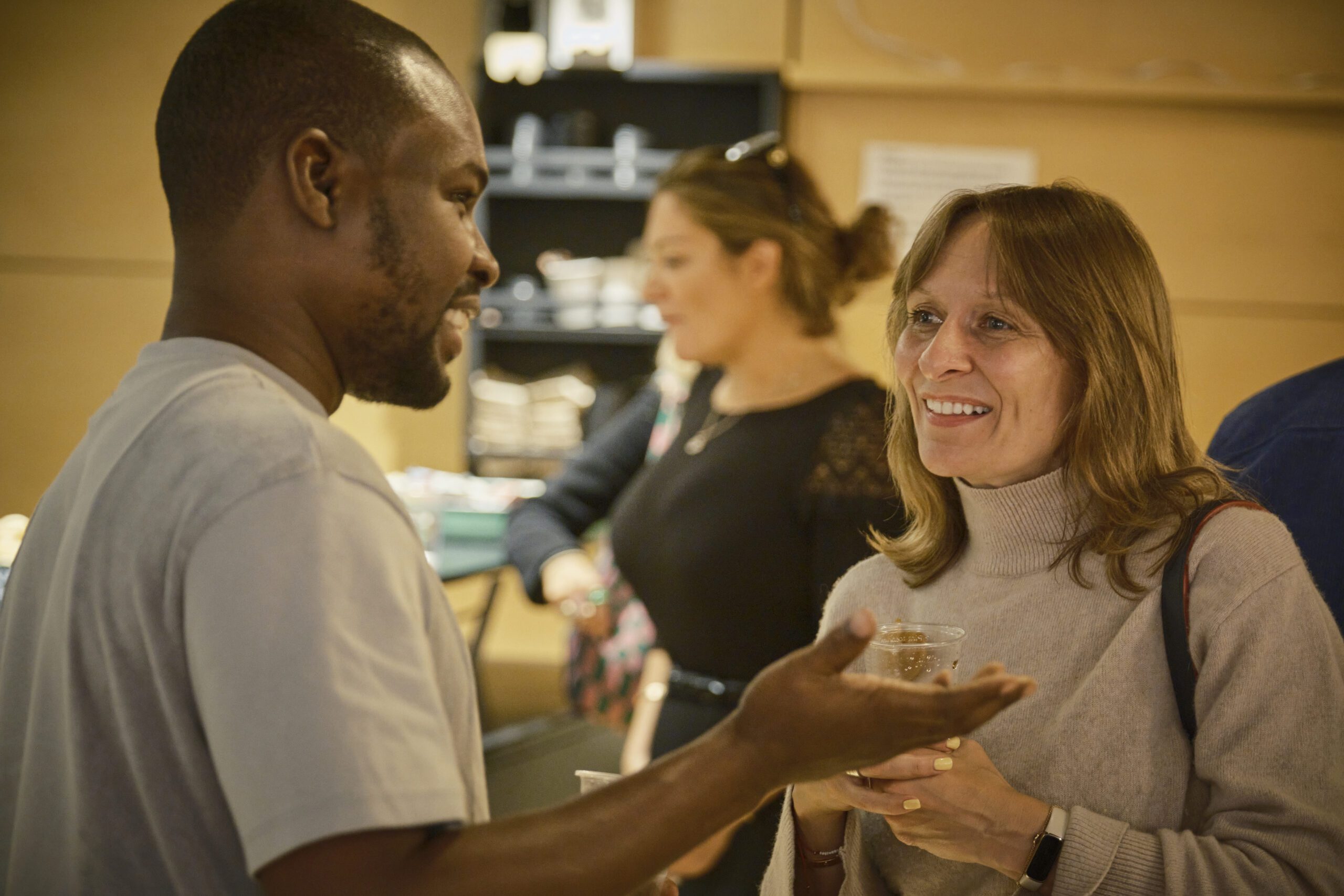Five methods actors use to learn lines and tips for learning lines quickly.
It’s always essential for actors to know their lines – whether it’s for an upcoming role or preparation for an audition. The sooner you have your lines memorised, the sooner you can focus on physical movement, your delivery, and character creation.
Every actor has a method they swear by for memorising their lines, and our Spotlight Prize 2023 winners and finalists are no different.
If you’re still looking for a way that works for you, or fancy trying a new method, here are the five different line learning techniques that they shared:
1. Line Repetition
Repeating your lines again and again is a common way for actors to memorise their scripts. Repetition helps to turn your lines into muscle memory, so instead of trying to recall them, you’re free to focus on your character’s emotion and interaction.
Repetition can be done either by reading the lines over and over, or by speaking them aloud again and again. Whichever way works best for you will depend on how you prefer to learn.
Lucas Albion prefers to read the lines and chooses to, “Cover lines up and see [if I] can [remember them],” once they’re familiar.
“If you can get the line three times in a row,” he says, “[Then you’ve] probably sunk it into your brain.”
Likewise, Lillia Squires chooses to “Stare at [the script] for hours on end until it goes in,” while Öncel Camci prefers to, “Just keep on saying the lines multiple times. Scream them, say that out loud with different variations.”
If repeating your lines verbally works best for you, you could take this one step further, as Amy Tara does. “I usually record the other person’s lines and then leave a little gap for my line,” she says. “And then just, again – repetition. Play the recording, say my lines.”
2. Break Down the Script
The thought of learning a 100-page script can be daunting and a daunted mind will not be receptive to new information. There are various ways to break scripts down to make them easier to learn, but here are the methods our finalists favour:
Uniting
As Chiara McDougall explains: “Uniting is a really big thing that actors use to separate the text into pieces and chunks.”
Breaking down what you need to learn into manageable chunks will simplify the process.
“It takes the pressure off learning this huge text,” Chiara adds.
The Word Build-Up
Another popular method for breaking down and learning lines is to start with the first word, then say the first and second word, then the first, second and third word, etc., until you’ve made it to the end of the sentence. This method is known as ‘word build-up’.
“By the time you’re done with one line,” Arnold Patrick Lumu says, “It’s in your head, and then you just keep doing that. You break it down thought by thought, line by line.”
Yasemin Junqueira also finds success with the word build-up, adding, “You’re not saying it with any inflexions and you’re not finding a pattern or a rhythm and getting stuck with it. You’re just learning the cold words.”
3. Incorporate Physical Movement
Associating memories with certain actions can make them easier to recall and our next finalists take advantage of this to help them learn their lines. They use physical movement to make the act of learning lines more interesting and more memorable.
“Do not sit behind the page and just go like that,” urges Charlotte Delima. “Move with the lines.”
Chelsie Lockwood agrees, saying, “I feel like when you read the lines on the paper and you just read them in your head, they’re not going to go in. You’ve got to get up, maybe do an activity like clean your room or clean the kitchen.”
4. The Tennis Ball Technique
If multitasking or being active helps your memory, you’ll love our finalists’ next line-learning method.
Edward Neale uses what he calls ‘the tennis ball technique’ to help him focus and remember.
“I use a tennis ball up against the wall,” he explains. “I throw it up against the wall because when you’re learning lines, it’s so easy to just be focused on that and then you think you know them and then the next day they’re just gone out of your head. But with the tennis ball, it’s like multitasking, so it really makes sure you drill in the lines.”
Although he doesn’t name it as such, Darcy Braimoh also uses a method similar to the tennis ball technique.
“I’m a reactive learner,” he says, “So I try and bounce balls off walls or, ages and ages ago, I used to have a ping pong paddle and just bounce the ball up and down just to really embody those lines.”
5. Record the Lines
Similar to the repetition method, some actors find it helpful to record their lines and listen to them back, similar to listening to a podcast or audiobook.
This method works for Ria McLeod. “I record myself saying the lines,” she says, “And then if you’ve got a long drive or you’re washing dishes or in the shower, just play them back.”
“But that can sometimes [make you] fall into a certain pattern or rhythm with how you then perform the lines,” she warns, so this is something to keep in mind.
Jess Gough takes this one step further by recording the lines of her scene partner as well. “I will record the other person’s lines on my phone and then I’ll read it in as well,” she explains. “So I’ll play the recording and it’s me talking to myself, but then if I’m in the car or on the train or even just at home, I just play the recording and it’s like I’m having a conversation with myself.”
Tips for Learning Lines
Once you’ve found a technique that works, you can still make learning your lines easier and less stressful by using the following tips. They should work no matter which method you’re using.
Give Yourself Plenty of Time
Never leave learning your lines to the last minute. You won’t have enough time to sort out any issues that arise, and you’ll be learning them under a lot of stress and pressure.
“Do it as quickly as you can when you get a script,” advises Kurtis Thompson, “[As] the quicker you can start having fun.”
Our Screen Prize winner, Shannon Watson, also agrees that leaving plenty of time to learn your lines is essential. “I try to start learning my lines two weeks beforehand,” she says. “Then I know that I’ll feel confident enough to be free on stage.”
If you’re struggling for time to learn your lines, you could always try Olivia Michi Shrenzel’s tips for learning your lines before you go to sleep:
“By the time I wake up, it’s in my brain because I think my brain works on it while I’m sleeping.”
Think of Your Character
If you understand the character you’re playing, then it should help you with recalling their lines. This is what Megan Kennelly believes.
“You are the character, so the words are your own already,” she says. “So don’t think of them as a dialogue you have to learn. They should already be part of you and your character and your makeup.”
“Maybe just figure out why you’re saying them,” she recommends. If you’re tuned into your character’s thought process, and they’re forced into a certain situation, then you should be able to figure out how they’d react and the words that come with it.
Riess Fennell also finds gaining an understanding of his character and the text useful: “Know what you’re doing. As long as you break down the text [and] know exactly what your character wants, the lines will start to pop in.”
Test Yourself
As you learn more and more of the script, it’s important to ensure you still remember the first few pages you learned.
Once she’s grown more comfortable with her lines, Olivia Chandler tests her recollection by, “Writing [them] on a sheet of paper, but only using the first letter of each word. So then if I need a prompt, I can look at it. It’s still challenging myself to remember the line, because I’ll only get the first letter of the next part.”
Don’t Get Frustrated
However difficult you find learning your lines, try not to get frustrated.
Our Stage Prize winner, Teddy Moore, offers this comforting advice: “I think it’s important to acknowledge that learning lines is really difficult for everyone. For some reason, acknowledging that it’s hard made it easier for me because I spent less time stressing about how slow I was learning them.”
Being a performer is never easy – especially with a whole script to learn, a deadline looming and lots of other people depending on your performance. However, you wouldn’t get frustrated with a cast mate who told you they were struggling, so you must also extend the same courtesy to yourself.
Be kind and patient with yourself, and eventually, the words will sink in.
Take a look at our News & Advice section for more videos and interviews with actors, agents and casting professionals.



















